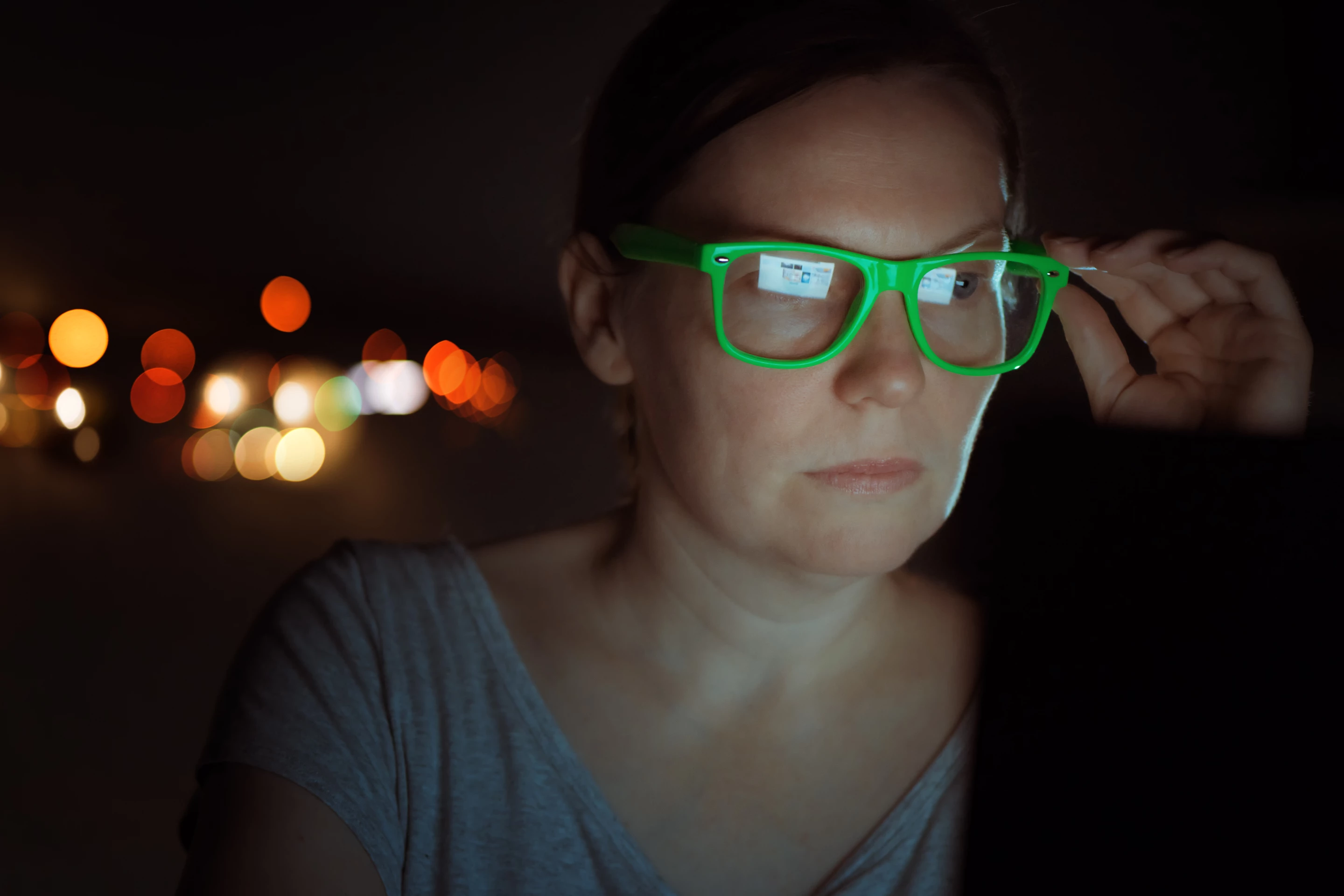In a study of studies, researchers concluded that eyeglasses that block blue light might not deliver on claims made by advertisers or optometrist offices. They caution consumers to think twice about shelling out the extra cash for the specs.
To reach their conclusion, researchers at the University of Melbourne with colleagues from Monash University, and City, University of London looked at 17 published studies from six different countries relating to the use of eyeglasses that block blue light. The randomized control studies ranged in size from five to 156 participants and each took place over a time period of just less than one day to five weeks.
They found that based on the current research, nothing conclusive could be said about the benefits of blue-light-blocking glasses on overall eye health, sleep quality, or visual performance. This is despite the facts that there are a range of advertising claims regarding these very benefits, and that such lenses are often prescribed for patients based on their alleged efficacy.
"The outcomes of our review, based on the current, best available evidence, show that the evidence is inconclusive and uncertain for these claims," said study lead author Laura Downie. "Our findings do not support the prescription of blue-light filtering lenses to the general population. These results are relevant to a broad range of stakeholders, including eye care professionals, patients, researchers and the broader community.”
Downie and her team are quick to point out that even with such a comprehensive review of the current research on blue-blocking glasses, it would take a much larger study to reach truly valuable data about the use of such specs. One of the issues they point out is that none of the studies reviewed had long enough follow-up periods for the researchers to make conclusions about the long-term use of the glasses.
“High-quality, large clinical research studies with longer follow-up in more diverse populations are still required to ascertain more clearly the potential effects of blue-light filtering spectacle lenses on visual performance, sleep and eye health," said first study author Sumeer Singh. "They should examine whether efficacy and safety outcomes vary between different groups of people using different types of lenses.”
Singh also points out that even without larger, longer, and more rigorous studies, the efficacy of blue-light-blocking glasses remains dubious.
“The amount of blue light our eyes receive from artificial sources, such as computer screens, is about a thousandth of what we get from natural daylight," he said. "It’s also worth bearing in mind that blue-light filtering lenses typically filter out about 10-25% of blue light, depending on the specific product. Filtering out higher levels of blue light would require the lenses to have an obvious amber tint, which would have a substantial effect on color perception.”
The new study has been published in the Cochrane Database of Systematic Reviews.
Source: University of Melbourne





